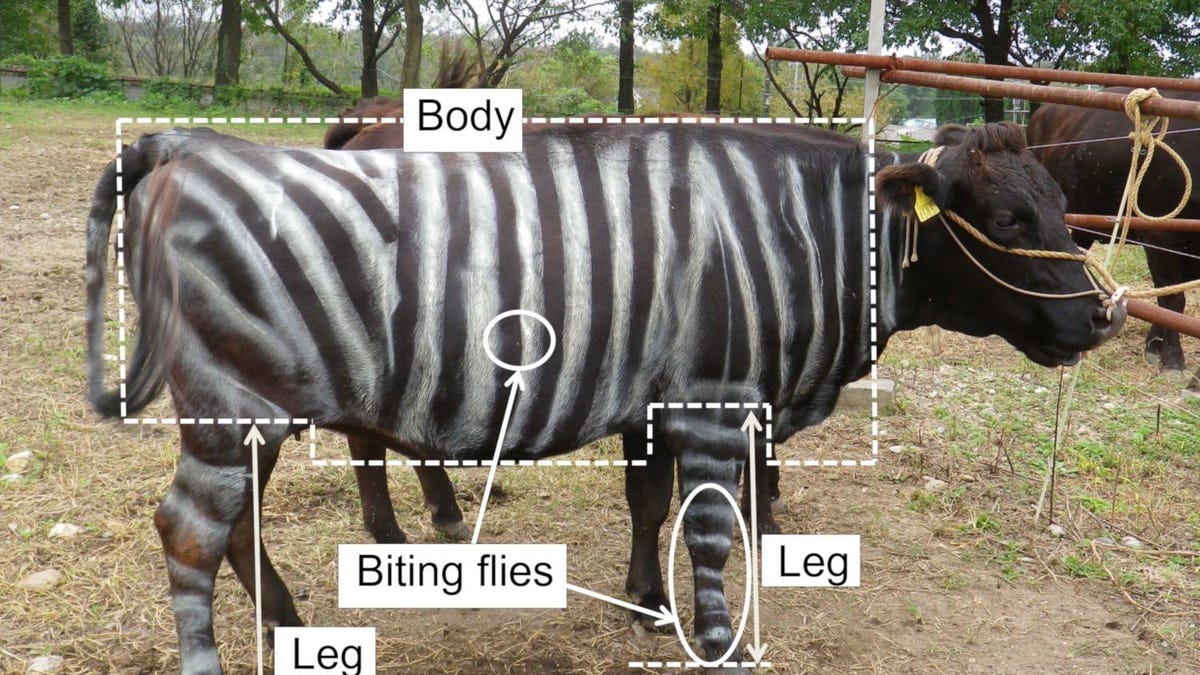Painting zebra stripes on cattle discourages biting flies, new study says
The stripes apparently confuse the pesky bugs' motion detector systems.

Example of the area of legs and body used to count biting flies on painted cows.
What if cows could avoid flies from biting them just by wearing stripes?
According to a new study published in PLOS ONE, when Japanese researchers painted zebra-style stripes on cows, biting flies bothered them half as much than cows without stripes.
The idea is that stripes may indeed confuse insect motion detection systems that control whether flies approach or land on the striped animal.
For the study, researchers painted six Japanese Black cows with black-and-white stripes, then observed cows with and without painted stripes for three days.
Researchers snapped high-resolution photos of the cattle at various times to count the number of insects pestering the cows. They also observed the cows to see if they stamped their legs, moved their tails and and other usual physical behaviors to repel the flies.
Examples of experimental cows with and without painted stripes. (a) Black-and-white striped cattle (B&W) with white lacquer, (b) Black-striped cattle (B) with black lacquer, (c) No stripe cattle.
Researchers continued to watch the striped cows to see if the paint chemicals actually repelled the flies. According to the results from study, the number of biting flies seen on the striped cows was less than half the number seen on unpainted cows.
"We found that painting zebra-like stripes on cows can decrease the incidence of biting flies landing on individuals by 50%," according to the study's findings. "We also found that the reduced landings of biting flies coincide with a reduction in defensive behaviors in cows."
Currently, the livestock industry uses pesticides on cattle to fight off biting flies, but this research could prove there is a less toxic, and possibly cheaper, alternative to using chemicals.
"This work provides an alternative to the use of conventional pesticides for mitigating biting fly attacks on livestock that improves animal welfare and human health, in addition to helping resolve the problem of pesticide resistance in the environment," the study stated.

